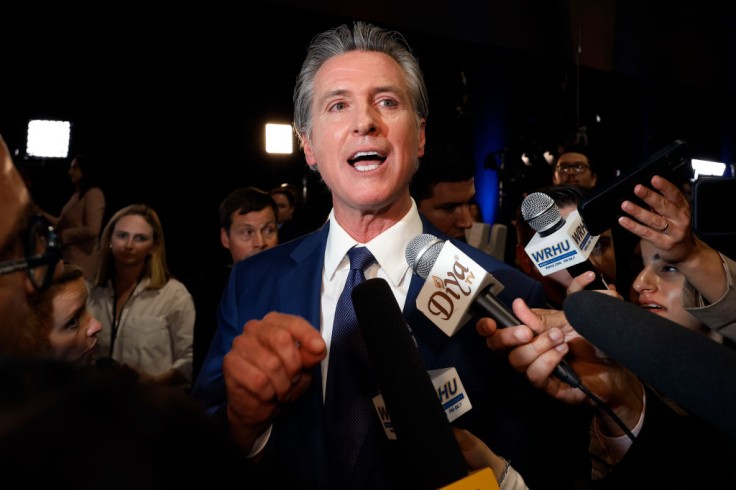Stanford to 'Review' Admissions Process After California Bans Legacy Entries
USC has confirmed the school will comply with the new law
By
Stanford University stopped short on Monday of pledging to comply with a new California law banning legacy admissions, while other prestigious institutions committed to upholding the newly passed legislation.
On Monday, California Gov. Gavin Newsom signed legislation banning legacy preferences, meaning private schools in the state can no longer consider family or donor ties during the admissions process.
In response, University of Southern California confirmed in an email to the Los Angeles Times that the school will comply with the law, writing, "all admitted students meet our high academic standards through a contextualized holistic review that values each student's lived experience, considers how they will contribute to the vibrancy of our campus, thrive in our community, benefit from a USC education and fulfill the commitments of our unifying values."
A spokeswoman for Claremont McKenna College said told the L.A. Times the school would be "happy to comply with this new legislation" and did "not anticipate it will have a significant impact on our admission process."
Stanford, on the other hand, "will be continuing to review our admissions policies."
In May, Stanford University Spokesperson Dee Mostofi told the Daily that Stanford had neither taken a stance on the measure nor changed its policies in response to the proposed legislation. Mostofi underlined that diversity is "critical" to the university's mission and that legacy status is one consideration in a comprehensive assessment process.
"Faculty representatives, admissions offices, and legal counsel are working to assess our admissions process and next steps since last year's SCOTUS ruling," Mostofi wrote.
As schools across the nation adjust their admissions processes following the Supreme Court's recent decision to prohibit race-based admissions policies, the new law will take effect in September 2025 and will impact popular private non-profit universities among wealthy Americans.
"We know that legacy applicants are far more likely to be wealthy, and they're more likely to be white than non-legacies," said Ryan Cieslikowski '23, lead organizer of Class Action, a national organization that opposes legacy admissions.
"On Stanford's campus, students are mobilizing to end the practice because it is not reflective of their values," the Stanford Daily reported.
By starting a community-wide petition, setting up a table in White Plaza, and urging Associated Students of Stanford University (ASSU) action, student members have strengthened their opposition to legacy admissions. Students in the State Capitol in Sacramento testified in favor of AB 1780 in April.
Stanford announced in 2023 that 15.4% of its entering fall 2023 class, or 271 students, benefited from a legacy or donor relationship, although all of those students fulfilled the school's academic admissions standards. According to Stanford, 21.2% of the incoming class were "first generation" students, meaning their parents did not attend college.
Gov. Newsom emphasized that college admissions should be based on "merit, skill, and hard work" on Monday. He added, "The California Dream should not be reserved for a fortunate few," and said that the new law ensures fair access to higher education for everyone.
© 2025 University Herald, All rights reserved. Do not reproduce without permission.








